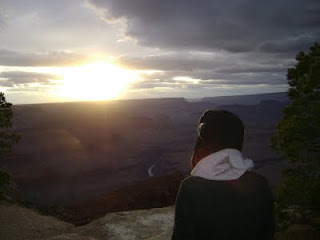A confession: I’m terrible with names. I can meet people at parties and forget their names in two sips of a gin and tonic. I’ve tried associating qualities with names: Sally is long and tall, Roxanne leaves a red light on, Bruce favors blue jeans and white T shirts. No luck. Faces are fine. Names, a problem.
I suspect I’m hardly alone in this. But, believe me, it’s not a good thing in a journalist. It’s no better in a teacher, who has to contend with as many as 50 new fresh-faced undergrads every semester. Making matters worse, half the kids sport the same long dark hair-dos and rarely wear anything but jeans.
So, it was interesting the other day when a group of us were talking about the tricks of memory. One fellow vividly recalls watching the Beatles debut on Ed Sullivan in a relative’s house, even remembering his position in the TV room. Problem is, his relatives didn’t live in that house at that time. Another friend mentioned how memories can’t be divorced from the words we use to describe them, so they’re shaped – perhaps distorted – by language. For my part, I fretted that I have few memories of my deceased parents’ faces, but instead recall photos of them.
It’s as if we don’t remember things first-hand. Incidents, people and places are all mediated through words or images. As Paul Simon might say, thank God for Kodachrome. It brings us those nice bright colors (or used to).
More peculiar, I think, is that many of us tend to recall bad things more easily than good or, at least, are affected more by nasty recollections. I have clear memories of slights or troubling childhood events and can summon up unpleasant images in a flash. It takes a bit of work to bring up the happy events.
Does this say something about one’s attitude toward life? Is a naturally happier person more likely to live in a world of upbeat memories? My friend, the Beatles fan, is a happy sort and has no trouble summoning up such a happy time, even if it didn’t quite happen that way. By contrast, does the dour person plague himself with bad recollections just to keep some dark guilt-inspired cloud hovering?
Perhaps we can blame the teachers, nuns, priests, rabbis, etc., who tortured us into profound feelings of guilt about our faults. They could take the tiny flaws in our character or behavior and grow them into gaping holes, making them loom large in person and in memory.
Certainly, personality seems to play a role in what we remember. I know several people who’ve grown up in the same houses with the same parents and yet seem to have had very different childhoods. Their recollections vary wildly, as the happy person bubbles over with cheery memories while the dour one only recalls the bleak moments.
As I chew over these things – oddly enough, on Memorial Day — I’m looking at a group of photos my wife and younger daughter have gathered. They’ll be used in an upcoming bridal shower for our older daughter. In one picture, that blonde-haired blue-eyed beauty, not quite of walking age yet, looks intently at a camera, dandled on the knee of a grinning dad with a full head of hair. Can that possibly have happened? Why is that sublime moment, an ordinary one really, lost to time except for a photo?
In another photo, all three kids stand before a fence with the Statue of Liberty far off in the distance. My gosh, were they cute. The youngest, who just beamed at her college graduation, flashed a smile to die for some 17 years ago or so. And can that handsome little guy on the left possibly be a military officer today, all grown up and serving at the moment in a dangerous place?
Lately, I’ve been photographing lots of things, in part because I need to develop a better facility with multimedia techniques. Job requires it. But my younger daughter and I just got back from a trip to the Grand Canyon in which she got pretty irritated at the camera. Why ruin the experience, she asked? Why do we want to take pictures anyway? Why not just enjoy the moment?
These are fair questions. But, graybeard that I am, I argued that pictures are not for showing friends where you’ve gone – nobody does that anymore. No, pictures are the ways we freeze time, which otherwise passes all too quickly. For a 22-year-old, the passage of time is inconsequential. For her father, it’s a different story.
Someday, she’ll dig through all those photos in our basement or troll through image banks on Facebook or its equivalent. She’ll laugh and weep at the memories they’ll conjure up. Will they be accurate memories? Probably not. But will they be true? In their own way, no doubt. Now, about those names, if anyone can recall some good tricks for keeping them in mind for just a semester or so …



